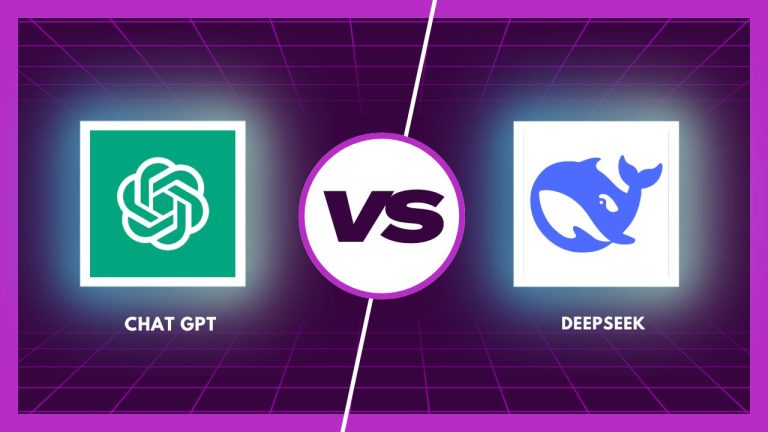Emerging Controversies: DeepSeek vs ChatGPT and the Battle for AI Supremacy
The fast changing world of advanced artificial intelligence, the race between tech giants has heated up. The global AI landscape burst into a frenzy recently when OpenAI — the organization behind ChatGPT — accused the Chinese model DeepSeek of copying its proprietary model. This claim underscores both the race for A.I. dominance and the mounting challenges for safeguarding intellectual property in the era of machine learning.
The Rise of DeepSeek
Hot on the heels of its global debut, DeepSeek has become a talking point for its capacity to provide top-tier responses and engage high accuracy (UAVs) to deliver competitive, fielded performance all the while minimizing the computational footprint needed. The platform’s adeptness has sent shock waves through the AI industry, and made it a formidable rival to established companies such as OpenAI.
DeepSeek milestones were aligned with the release of Alibaba’s Kuai 2.5 Max AI in China. Literally nothing matters now that these more advanced models are out there; even international finance is feeling the burn, with U.S. chipmaker NVIDIA seeing its stock value drop by a staggering $60 billion in one day.
Accusations from OpenAI
As such, OpenAI argues that DeepSeek could have illegally used and accessed the data from its AI models that were necessary to create its platform. OpenAI and its major investor Microsoft are looking into whether DeepSeek has collected data without permission, news agency Bloomberg reported. The suspicion is based on evidence of a technique named “AI distillation.”
What is AI Distillation? In AI distillation, one AI model is constantly asking questions and learning from the answers given by another AI model. Through several iterations of reviewing such answers, the model learns how to solve complex queries more effectively. OpenAI considers this an infraction of their terms of service.
DeepSeek’s Reduction and Business Case
To date, DeepSeek has not publicly responded to these claims. But it highlights a key challenge facing AI companies: how to protect their models from being replicated or exploited by other companies. Because the many facets of AI are so closely tied to the spirit of sharing and collaboration that characterized the earliest days of AI, it’s becoming increasingly difficult to draw the moral and legal lines around all of this.
OpenAI’s Own Controversies
Ironically, OpenAI has been criticised for the same reasons. The New York Times and several other media organizations have sued the company, claiming it used proprietary content to train its models without permission. These lawsuits show that data usage and intellectual property are certainly not confined to one company or continent.
DeepSeek vs ChatGPT: Key Comparisons
| Feature | DeepSeek AI (R1/V3) | ChatGPT (GPT-4o) |
| Model Type | Mixture-of-Experts (MoE) | Transformer (Full Parameter Use) |
| Efficiency | Activates only a fraction of parameters per request | Uses all parameters simultaneously |
| Open-Source | Yes (DeepSeek R1) | No (Proprietary) |
| Multimodal | Yes (Limited) | Yes (Advanced) |
NVIDIA’s Roadmap Through an AI Shake-Up
Jensen Huang, NVIDIA’s CEO, still has his eyes set on the future of AI, especially in regards to “physical AI.” The AI genie is visible non only in terms of making the such as in the form of humans like robots and driverless cars. Even with stock marked fluctuations, NVIDIA remains a powerhouse in the field of AI hardware.
Creating AI Innovations and Competitions
The AI Market in China is heating up with the recent launch of Alibaba’s Kuai 2.5 Max AI. They claim that the new model has achieved better performance than DeepSeek-V3 and OpenAI’s GPT-4.
The controversy surrounding DeepSeek and the emerging AI landscape prompts essential discussions on ethics, copyright, and the future of creative expression. With firms having to walk the fine line between speed of change, safeguards for their tech, and ethical behavior.
Conclusion
It also highlights the intricacies of the contemporary AI scene, which we see in the ongoing contests between companies like DeepSeek and OpenAI. These #AI #tech are evolving fast and data usage and model replication issues are only going to increase. These obstacles include managing ideas around fair laws and ethical innovation to ensure new ideas from both established companies and startups can thrive.


